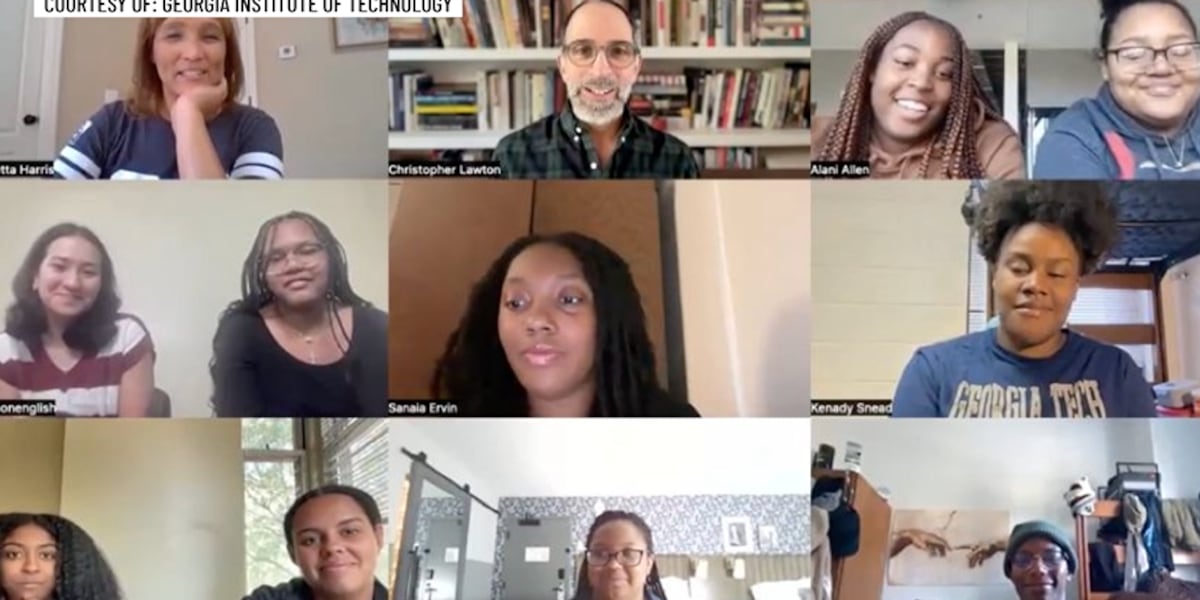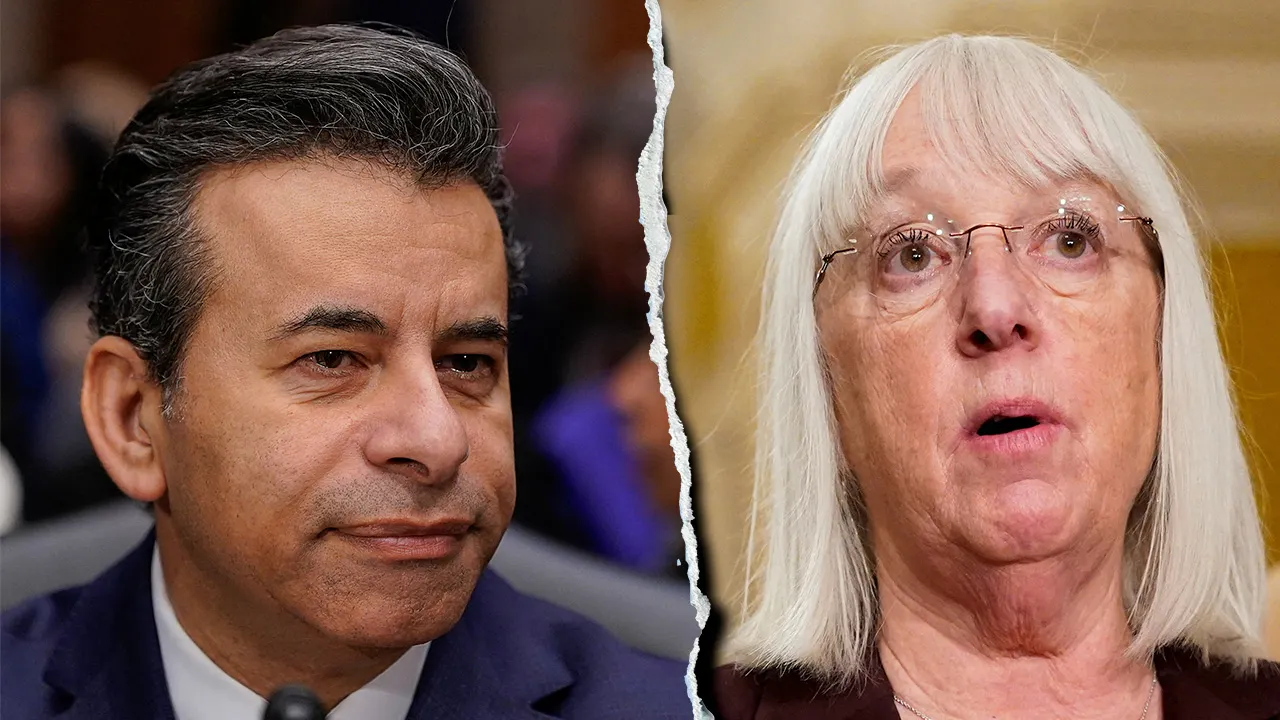Georgia
Brain-Eating Amoeba Kills 2nd Person in July, This Time In Georgia

July has seen two deaths from Naegleria fowleri infections, one in Nevada and another in Georgia. … [+]
You figure that anything with the nickname brain-eating is not going to be good. That certainly applies to Naegleria fowleri, which has been dubbed the “brain-eating amoeba.” And in this month of July, this single-celled microorganism has already killed two people in U.S. with its brain-eating ways. Earlier this month, a two-year-old child died after visiting Ash Springs in Nevada, which are hot springs located approximately 100 miles north of Las Vegas. And on July 28, the Georgia Department of Public Health announced that a Georgia resident has also died from such an infection after swimming in a freshwater lake or pond in Georgia. The Department of Public Health did not provide any further details about the individual or where that individual had been swimming.
Yeah, there’s nothing really positive about an amoeba that eats your brain. N. fowleri is a foul organism indeed. It typically lives in warm fresh water and can enter your body when water containing the amoeba goes up your nose. And the amoeba seemingly knows that your nose is a gateway to your brain. It just keeps swimming, just keeps swimming, just keeps swimming to your brain where it then begins to munch away. If the sounds disturbing, it is.
The resulting damage is called primary amebic meningoencephalitis (PAM). PAM is terrible—meaning this syndrome and not all people named Pam. “Meningo” stands for the meninges, which are the membranes that wrap around your brain sort of like Saran Wrap around a knish. “Encephalo-” stands for “brain.” And the suffix “-itis” means inflammation. So PAM is essentially widespread inflammation of the brain and the membranes wrapping around the brain caused by amoebas treating the insides of your head like a buffet.
The major problem is that it can take a while to notice such an infection. These amoebas don’t chew loudly or talk while eating, and symptoms may not emerge during the first one-to-nine days of the infection. Even when symptoms like a fever, nausea, vomiting, and a bad headache in the front of your head start, a brain-eating amoeba may not the first thing that you think of when your have a headache. That’s why people don’t tend to get diagnosed and treated while PAM is still in Stage One of the infection, as described by the Centers for Disease Control and Prevention (CDC).
Things get a bit more obvious at Stage Two, which is marked by more severe symptoms such as a stiff neck, seizures, altered mental status, hallucinations, or a coma. By then, the amoeba has already wrought quite a lot of damage. However, even at this point, a brain-eating amoeba infection can be easily mistaken for a more common problem like bacterial meningitis. Again, a brain-eating amoeba may not be the first thing on your mind or other people’s minds, even when this microorganism is literally all over your mind. All of this may delay the administration of miltefosine, a drug that can kill the amoeba, and the induction of hypothermia—lowering you body temperature—to reduce the swelling of your brain.
Such delayed diagnosis and treatment is a big reason why this infection is almost always fatal within 18 days of when symptoms first appear. There’s been only 157 cases of N. fowleri infections having been reported to the Centers for Disease Control and Prevention (CDC) from 1962 through 2022. However, as study published in the Journal of the Pediatric Infectious Diseases Society detailed between 1962 and 2018, only four people in the U.S. managed to survive PAM. In fact, half of those infected ended up dying within five days of first noticing symptoms.
Those aren’t great odds. In fact, those are terrible odds. So, it’s best to keep N. fowleri from getting into your brain in the first place. That means keeping any type of fresh water from going up your nose. That means holding your nose or wearing nose plugs when diving into lakes, rivers, hot springs, swimming pools, water heaters, industrial plants, or any other body of water that is not well-chlorinated. If you are swimming in a water heater or a water tank in an industrial plant, you’ve probably got other things to worry about as well.
And if someone is telling your to pour tap water up your nose using a Neti pot or any other contraption, don’t. Back in December 2018, I covered for Forbes a case of a a woman getting a different type of amoeba infection of the brain from regularly using a Neti pot.
One more thing. The amoeba can be found in soil as well. Therefore, shoving soil up your nose is a bad idea too. Of course, the risk of N. fowleri infections shouldn’t be the only reason why your shouldn’t shove soil up your noise.
Fortunately, N. fowleri isn’t everywhere. It tends to prefer warmer water. Most of the infections have resulted during the Summer months in the 15 Southernmost states of the Continental U.S., with over half of the case having occurred in Texas and Florida, according to the CDC. That may change in the coming years with climate change, you know that thing that some people are claiming is not big deal. Nevada isn’t one of the 15 Southernmost states in the U.S. And as the average temperature had gotten warmer and warmer more and more infections have been appearing in more Northern states, as a publication in the Journal of Infectious Diseases described. Yeah, add more brain-eating amoebas to the growing list of not-so-cool things about global warming and climate change.

Georgia
Georgia Tech students help Savannah woman trace her lineage back 6 generations, despite the impacts of slavery

ATLANTA, Ga. (Atlanta News First) – Georgia Tech students have helped a Savannah woman trace her lineage back six generations, despite the overwhelming impacts of slavery.
It is one thing to know history from a textbook, it is another to know your own: where you came from, what stories have made you who you are, what kind of people have come before you.
“Trace your ancestry. Even if it is not for you or you aren’t interested in it- maybe your kids are, maybe your grandkids will be one day,” said Kenyetta Harris, who is currently living in Savannah.
If you are an African American, tracing your ancestry can be brutal because of the vicious impacts of slavery.
“Everyone has the right to know where they come from, but not everyone has that luxury,” Georgia Tech student Haley Evans said.
Dr. Christopher Lawton is a professor at Georgia Tech. The school doesn’t have a history major, but passionate STEM students sign up to help him dig up history and tell the stories of enslaved peoples in Georgia. He has been doing this work for years.
“It gave me such a newfound appreciation for people who do this kind of work because of how hard it is,” Evans said.
“Some histories of the past that leave some stories out or some people out aren’t good for anyone,” Dr. Lawton said.
Dr. Lawton was connected with Kenyetta Harris, who has been trying to trace her roots.
“You are trying to put together this puzzle but eventually you realize you can’t put together all of the pieces because some of them are always going to be missing,” Evans said.
“It took me a moment. It really brought me to tears. I just couldn’t believe it,” Harris said.
The students in his class, with guidance, were able to dig six generations back into Kenyetta’s family.
“Listening to the students tell the story of Cyrus, Sukey, Emmanuel, Candace and all the other family members that were enslaved. It really brought me to tears,” Harris said.
“To know where you come from is a privilege. Having some names, stories, even an area to tie that to can really make a difference just in the way that you walk, the way that you talk and the way that you carry yourself throughout this world,” said Georgia Tech student Andrea Lewis.
“We are telling the story more fully and more openly and more accurately, I think that is good for everyone,” Dr. Lawton said.
By clicking on the Georgia Tech story, you can hear students reading the histories of several members of Kenyetta’s family.
The findings will be added to Dr. Lawton’s Seen/Unseen website. The website is set up for his book Seen/Unseen: Hidden Lives in a Community of Enslaved Georgians. You can go there now and learn about the histories of dozens of enslaved Georgians.
Copyright 2025 WANF. All rights reserved.
Georgia
Georgia ranks highest teacher morale in nation

ATLANTA – State School Superintendent Woods has released a statement on Georgia’s ranking the highest for teacher morale in the nation.
Release:
Education Week released its Teacher Morale Index, a “year-over-year, multifaceted gauge of how teachers feel about the profession” developed by the EdWeek Research Center. According to EdWeek, the index measures teachers’ levels of confidence and enthusiasm about their work based on responses to survey questions that were part of a larger, nationally representative poll of teachers conducted last fall.
The index shows Georgia with the highest teacher morale index score in the nation, at +47 compared to the national average of +18. State School Superintendent Richard Woods’ statement on the ranking is below:
“For more than a decade, my administration has worked with partners throughout the state to lower high-stakes testing requirements, raise pay, and listen to teacher voices. As a veteran educator, I have always aimed to be a voice for common-sense, classroom-centered policies. Education Week’s top ranking for Georgia is not an indicator that our work is done, but a reaffirmation of the importance of this direction in the months and years ahead. We must continue to support those on the front lines serving and supporting our students – our teachers.”
Learn more about teaching in Georgia via Teach in the Peach, Georgia’s just-launched one-stop-shop for teacher recruitment. Aimed at making Georgia the #1 state for teachers to teach, the Teach in the Peach website is designed to simplify and celebrate the pathway to becoming a Georgia public school teacher. It provides essential resources, including information about the benefits of teaching in Georgia, personalized certification pathways, a statewide interactive job map, and a career fit quiz to help individuals explore their potential in education.
Georgia
Some parts of GA under a freeze warning. Will it snow overnight in Georgia?

Video: Snow hits Athens for the second time this winter
Polar winds have brought snow to the Classic City for a second time in January.
It’s March, but snow might not be done in Georgia.
Northern portions of the state, mainly in the mountains, could see some overnight snow as the back end of a front pushes through.
Snow flurries could fall as far south as Lake Lanier, some forecasts project, while freeze and frost warnings have been administered across northern parts of the state.
“Snow showers are currently ongoing over portions of north Georgia and are expected to continue through the early morning hours,” the National Weather Service said Wednesday night. “Temperatures will drop quickly, turning wet, untreated pavement to dangerous, slick ice for the morning commute in the higher elevations.”
The NWS warns of black ice on the streets Thursday morning with snow of up to an inch in elevations 2,500 feet or more. A dusting of snow will occur in lower elevations.
Areas of impact include Rome, Gainesville, Dalton, Canton, Cartersville, Calhoun, Jefferson, Lafayette, Cumming, Dahlonega, Summerville, Chatsworth, Jasper, Ringgold, Cleveland, Dawsonville, Trenton, Ellijay, Blue Ridge, and Hiawassee.
Areas in western Georgia from Ringgold to LaGrange are under a freeze warning until 10 a.m. Thursday with temperatures as low as 25 degrees. Other portions of north Georgia such as Pickens, Union, Towns and White County are under a wind advisory until 10 a.m. with gusts up to 45 mph expected.
Will Athens be impacted by snow?
Athens is under a frost advisory Wednesday night until 10 a.m. Thursday as temperatures are expected to drop overnight to around 36 degrees.
A couple passing showers late night should pass through without severity, and no snow is expected.
When was the last snow in Georgia?
Georgia has seen a pair of snow events this year. Some areas as far south as Savannah were hit with snow and ice in January while another wave moved through Georgia in mid-February.
Ryne Dennis is the Deep South Connect Team Editor for Gannett/USA Today. Find him on X @RyneDennis and email at rdennis@onlineathens.com.
-

 Sports1 week ago
Sports1 week agoNHL trade board 7.0: The 4 Nations break is over, and things are about to get real
-

 News1 week ago
News1 week agoJustice Dept. Takes Broad View of Trump’s Jan. 6 Pardons
-

 World1 week ago
World1 week agoHamas says deal reached with Israel to release more than 600 Palestinians
-

 Science1 week ago
Science1 week agoKilling 166 million birds hasn’t helped poultry farmers stop H5N1. Is there a better way?
-

 News1 week ago
News1 week agoChristianity’s Decline in U.S. Appears to Have Halted, Major Study Shows
-

 World1 week ago
World1 week agoGermany's Merz ‘resolute and determined,' former EU chief Barroso says
-

 Technology1 week ago
Technology1 week agoMicrosoft makes Copilot Voice and Think Deeper free with unlimited use
-

 Politics1 week ago
Politics1 week agoSome Republicans Sharply Criticize Trump’s Embrace of Russia at the U.N.















